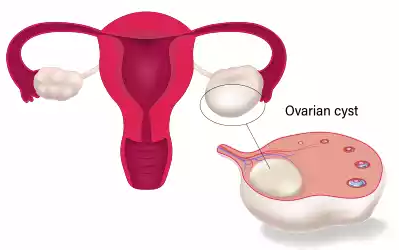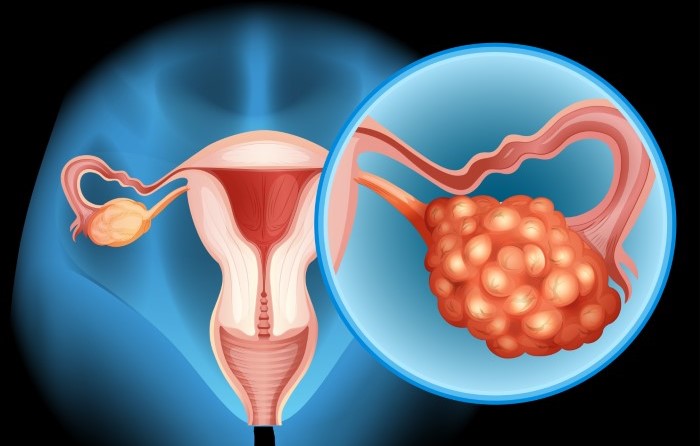Best RVF Treatment in Delhi

Overview
Imagine you’re living your life, and everything seems normal. Then one day, you notice discomfort, a persistent issue that’s hard to talk about. For many women, this scenario becomes a reality when dealing with Rectovaginal Fistula (RVF). It’s an issue no one expects but one that impacts daily life severely. If you’re experiencing RVF, you’ve likely been searching for answers, relief, and a sense of normalcy again. This blog is your guide to RVF Treatment in Delhi, where we’ll break down the condition, its symptoms, treatment options, and how to get help at Pelvinic, one of the top facilities for this treatment.
What is RVF (Rectovaginal Fistula), and How Can You Recognize Its Symptoms?
RVF, or Rectovaginal Fistula, is an abnormal connection between the rectum and the vagina. This condition can cause stool or gas to pass through the vagina, leading to severe discomfort, embarrassment, and infection risk. Symptoms are often hard to ignore and may include:
-
Constant passage of stool or gas through the vagina
-
Recurring infections
-
Foul-smelling vaginal discharge
-
Irritation or pain in the vaginal or rectal area
Recognizing these symptoms early is critical in seeking timely medical advice to prevent the condition from worsening.
How Does RVF Affect Your Health, and Why is Early Treatment Important?
Living with RVF can be incredibly taxing, both physically and emotionally. Aside from the physical discomfort and infections, the psychological toll is often overwhelming. Social embarrassment, isolation, and anxiety are common among patients. More importantly, ignoring the issue can lead to complications, including chronic infections and damage to pelvic organs.
Early treatment is crucial not just for physical health but for mental well-being. If you notice any signs, consulting a specialist is essential.
What are the Main Causes of RVF, and Who Is at Risk for Developing It?
Understanding the causes of RVF can help you identify risk factors. While it can occur for various reasons, some of the most common include:
-
Childbirth trauma: Prolonged labor or difficult vaginal deliveries, especially involving forceps, can cause damage.
-
Infections or inflammatory diseases: Conditions like Crohn’s disease often result in fistula formation.
-
Surgical complications: Some abdominal surgeries may lead to unintended damage to the pelvic organs.
-
Radiation therapy: Cancer treatments targeting the pelvic area can cause tissue damage, increasing RVF risk.
What Can You Expect from the RVF Treatment Process in Delhi?
The treatment journey for RVF is comprehensive but manageable with the right medical guidance. Here’s what you can expect at Pelvinic:
-
Diagnosis: A thorough examination and imaging tests, such as MRI or ultrasound, to confirm the diagnosis.
-
Pre-Treatment Preparation: Depending on the treatment option, you may need to undergo tests or a temporary procedure like a colostomy.
-
Surgery or Treatment: If surgery is required, it’s usually performed laparoscopically for minimal discomfort and quick recovery.
-
Post-Operative Care: Follow-up appointments to monitor recovery and avoid complications.
-
Full Recovery: In most cases, patients can return to normal activities within a few weeks.
What are the Post-Treatment Care Tips for RVF, and How Long Does Recovery Take?
Post-treatment care is vital to ensure a full and healthy recovery. Here are some tips:
-
Maintain hygiene: Keeping the area clean is essential to avoid infections.
-
Follow dietary restrictions: A diet high in fiber can ease bowel movements and reduce strain on the treated area.
-
Regular follow-ups: Attend all scheduled check-ups to ensure the fistula is healing properly.
-
Avoid heavy lifting: Refrain from strenuous activity for at least a month post-surgery.
Recovery usually takes 2 to 6 weeks, but full healing can take a bit longer depending on the procedure.
How Do You Choose the Right Specialist for RVF Treatment in Delhi?
Choosing the right specialist is crucial for successful treatment. Here’s what you should consider:
-
Experience: Look for a surgeon with specific experience in RVF surgeries.
-
Patient Testimonials: Reading reviews from previous patients can provide insights into their experience.
-
Technology and Techniques: Ensure the clinic uses modern, minimally invasive techniques to enhance recovery.
-
Compassionate Care: At Pelvinic, we believe in treating patients with humanity and kindness, providing comprehensive support from consultation through recovery.
Why is Dr. Sandip Banerjee the Best Choice for RVF Treatment in Delhi?
When it comes to RVF Treatment in Delhi, Dr. Sandip Banerjee stands out as one of the leading experts. With over 15 years of experience in laparoscopic and colorectal surgery, Dr. Banerjee has a proven track record of successful treatments, including over 5000 surgeries in the anorectal region. His compassionate approach, combined with his mastery of minimally invasive techniques, ensures that patients receive not only expert care but also emotional support throughout their treatment journey.
At Pelvinic, Dr. Banerjee and his team offer cutting-edge treatment for RVF, focusing on affordability, patient comfort, and successful outcomes. With their expert guidance, you can rest assured that you are in the best hands.
Conclusion
Living with RVF can be both physically and emotionally challenging, but you don’t have to face it alone. Pelvinic in Delhi offers top-notch treatment solutions to help you regain your health and confidence. If you or a loved one is experiencing symptoms of RVF, don’t wait—seek expert care today. With Dr. Sandip Banerjee leading the way, you’ll receive the highest quality treatment with compassion and expertise at every step.
FAQs
1. How long does RVF surgery take?
Ans. RVF surgery typically takes between 1 to 2 hours, depending on the complexity of the case.
2. Can RVF reoccur after surgery?
Ans. While recurrence is rare with proper post-surgical care, following recovery guidelines reduces the risk of recurrence.
3. Will I need a colostomy for RVF surgery?
Ans. In severe cases, a temporary colostomy might be necessary, but this is not always required and depends on the specific case.
4. Is RVF surgery painful?
Ans. Minimally invasive surgery, like the one performed at Pelvinic, significantly reduces post-operative pain and discomfort.
5. How soon can I return to normal activities after RVF treatment?
Ans. Most patients can resume normal activities within 2 to 6 weeks, depending on the procedure and individual healing process.
Get specialized RVF treatment in Delhi with expert doctors at Pelvinic. Advanced care, compassionate support, and innovative solutions for faster recovery.



